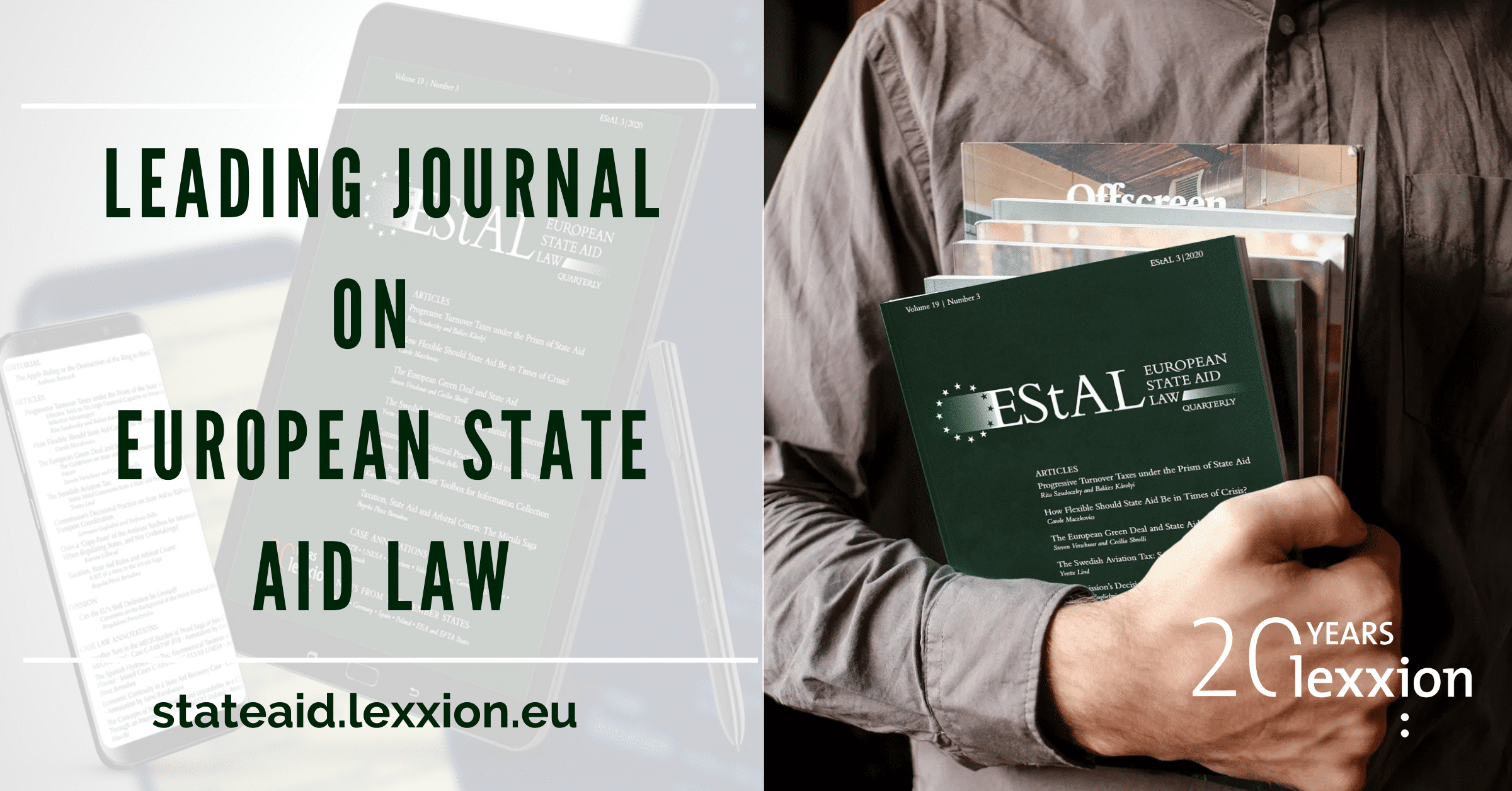
Sign up for our free news alert
Cyprus is one of the very last Members States that has not notified yet any coronavirus-related State aid scheme to the Commission or the Cyprus Commissioner for State Aid Control.
In contrast to this notable omission, Cyprus was one of the first Member States to enact drastic and, later on, draconian administrative measures for the limitation of the Covid-19 virus. Pursuant to Ministerial Decrees issued under the Quarantine Law, measures were enacted prohibiting the entry of any person to Cyprus, suspending the operation of thousands of businesses and the gatherings and movements of citizens, other than those commuting to work and falling within specific exceptions. Thousands of checks are conducted by the Police and heavy fines have been imposed.
Financial support measures of general nature were also adopted to relieve businesses and employees from the negative economic effects of the pandemic. However, due to mostly political reasons elaborated further below, no State aid measures have been adopted and notified yet.
It is useful to have in mind that despite its small size, Cyprus has been quite a State aid-sensitive Member State for the past 20 years, mostly as a result of the active decision-making, advising and monitoring by the State Aid Control Commissioner, an independent public authority established by law on 2001.[1]
Thus, I will describe two categories:
- Non-selective financial measures adopted and not notified
- State aid measures that, albeit repeatedly discussed, they are not yet adopted and notified to the Commission
Non-selective Financial Measures Adopted and Not Notified
Right from the very start of the pandemic’s outbreak, swift action was taken by the Ministry of Finance and the Ministry of Labour to support businesses and employees. Several support measures of general nature were adopted. They were not notified to the Commission or the Commissioner for State Aid Control, as they were considered to be falling out of the ambit of State aid rules, since they are not selective and/or the aid beneficiaries are not undertakings. The following are the most important measures:
- Special Schemes for Complete or Partial Suspension of Business
The two Special Schemes for Complete or Partial Suspension of Business and the Provision of a Special Unemployment Benefit are valid as from 16/3/2020 and recently extended to apply until 12/06/2020.
The Complete Suspension Scheme applies to Businesses who have completely suspended their operation by virtue of the Ministerial Decrees, while the Partial Suspension applies to enterprises which are still operating but have a turnover decline greater than 25% in March 2020 and are projecting a corresponding drop in turnover for April 2020.
The basic requirement for participation in both Schemes is that no employee has been fired since 1 March 2020, and in case the application is approved, any employee should not be dismissed for a period of 7 months.
A Special Unemployment Benefit will be paid to 90% of employees (75% for Partial Suspension Scheme). Employees who qualify for unemployment benefit under the Social Insurance Law shall receive the 60% of the value of their insurance units. The maximum amount that may be paid as a Special Unemployment Benefit for a period of one month may not exceed €1,214.
- Special Sick Leave Allowances
Special Sick Leave Allowances apply until 12/06/2020. The main categories of recipients are private sector employees or self-employed persons who are on the list of vulnerable groups as designated by the Ministry of Health or are subject to compulsory isolation (quarantine) and self-isolation or are infected with COVID-19 or are working parents responsible for the care of children up to 15 years old.
The provisions described above for the Suspension Schemes regarding the percentage of the unemployment benefit and the maximum amount, apply as well.
- Suspension of Credit Installments and Interest Payments
Pursuant to the Emergency Measures by Financial Institutions and Supervisory Authorities Law of 2020[2], a Decree was issued by the Minister of Finance providing that the obligation to pay installments, including interest on credit facilities granted and / or purchased and / or managed by financial institutions, is suspended for all beneficiaries.
The beneficiaries are natural persons, legal persons governed by public law, self-employed persons and businesses who had no delays in paying installments more than 30 days as from the date provided for by existing contractual obligations on 29 February 2020.
- VAT and social security relief measures
The standard VAT rate of 19% was reduced to 17% for March and April 2020 and pursuant to amending legislation, a suspension of the obligation of VAT payment was granted to persons registered in the VAT Registry, whose specified taxation periods end on the 29th of February 2020, the 31st of March 2020 and the 30th of April 2020.
The right of VAT suspension is not applicable to taxable persons who fall into non affected economic activities, such as supermarkets, pharmacies, internet and telecommunications services etc.
Moreover, the House of Parliament voted for the non-payment of the increased contribution to the General Healthcare System (GESY) for a period of three months, meaning April–June 2020. Extension for the submission of the 2018 tax returns and companies’ annual returns was also granted to businesses.
– Ad –
European State Aid Law (EStAL) provides you quarterly with a review of around 100 pages, containing articles, case studies, jurisdiction of both European and national courts as well as communications from the European Commission. EStAL covers all areas pertaining to EU State aid and subsidies, among others:
✓ The evolution of the concept of State aid;
✓ State aid Modernization;
✓ Services of General Economic Interest (SGEI);
✓ General Block Exemption Regulation (GBER);
✓ Judicial review of Commission Decisions;
✓ Economic assessment and evaluation;
✓ Enforcement at national level;
✓ Sectoral aid and guidelines.
State Aid Measures That, Albeit Repeatedly Discussed, Are Not Yet Adopted and Notified to the Commission
The Cyprus Demos (Parliament) stands divided before the Pandemic.
The Ministry of Finance has long prepared a Draft Bill, introducing a coronavirus-related Government Loan Guarantee Scheme for businesses. The Scheme, as announced by the Government, appears to comply with the conditions set by the Commission in point 3.2 of the Temporary Framework for aid Measures to Support the Economy in the current Covid-19 Outbreak, as amended on the 3rd April 2020.
In particular, the proposed Scheme provides for the following:
- The Scheme sets the minimum levels for guarantee premia in line with the Temporary Framework. The maximum coverage ratio of the state guarantee under the scheme is 70%, while banks guarantee the remaining 30%. Interest on loans ranges from 0,75%-1,50% depending on the time period and whether security is provided to the credit institution or not.
- The maximum loan amount per beneficiary covered by guarantees granted under the measure is limited in line with point 25(d) of the Temporary Framework.
- The duration of the guarantee is limited to a maximum of 6 years.
- State guarantees granted under the measure relate to new investment and new working capital loans.
- Safeguards are included in relation to the possible indirect aid in favour of the credit institutions. The loan covered by the guarantee cannot be used for repayment of another loan. Finally, the guarantee can only be used for new loans.
Unfortunately for Cypriot businesses, although the adoption of the Scheme was exhaustively debated before the Parliament, at the moment it is blocked by the opposition Parliamentary parties. Cyprus is a Presidential Democracy and the Government does not hold the majority of votes in the Parliament. Fears are expressed by opposers that the Scheme will mostly benefit the banks and not the enterprises/actual recipients, while others stress out the fact that Cypriot businesses are already heavily indebted and burdened with non-performing loans.
Counter measures involving grant of de minimis aid and direct subsidies or tax reliefs by the State are proposed by the opposing parties, however the Minister of Finance has repeatedly pinpointed that the Guarantee Scheme’s biggest advantage is that it grants aid to enterprises through funds provided by the banks, without spending, at this critical moment, valuable state resources/liquidity.
This is the main reason why Cyprus stands as one of the few Member States that has not adopted coronavirus-related State aid measures. It remains to be seen whether the Parliament, being the representative of the Cyprus Demos, will finally reach a consensus and approve the Government Loan Guarantee Bill or other State aid measures that will assist businesses to get liquidity and deal with the devastating effects of the virus pandemic.
This report accounts for the situation in the Republic of Cyprus as at 9 April 2020. It is anticipated that State aid will be a hot topic for the next weeks or months. Several coronavirus-related State aid proposals are expected to be promoted, discussed and brought before the Parliament for adoption.
————————————————————–
[1] State Aid Control Law (Law No. 30(I)/2001), as amended.
[2] Law No. 33(I)/2020.
* A version of this report will be published in a future issue of the European State Aid Law Quarterly.




